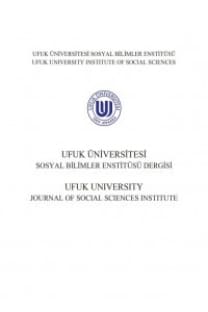ORTAKLAŞA YÖNETİŞİM: AB-OECD GENİŞLEME POLİTİKALARI ORTAKLIĞI
Dünya Bankası, Birleşmiş Milletler (BM), Avrupa Birliği (AB), Ekonomik İşbirliği ve Kalkınma Örgütü (OECD) ve Uluslararası Para Fonu (IMF) gibi uluslarötesi kuruluşlar, çeşitli ortaklıklar kurarak birbirlerinin politikalarını takip etmeye başlamıştır. Bu yeni model ortaklaşa yönetişim olarak tanımlanmış ve daha çapraz, karma ve çoklu yapıya sahip olmuştur. Ortaklaşa yönetişim modeli küresel aktörlerin çeşitli ortaklıklar ile kamu politikalarını yönlendirmelerine ve devlet erkinin sınırlandırılmasına neden olmuştur. Ortaklaşa yönetişim ile devletin rolü yeniden tanımlanırken sermayenin hareket alanını artırması ve çokuluslu şirketler lehine düzenlemeler yapılması sağlanmıştır. Model, insan hakları, çevrenin korunması, toplumsal hakların korunması söylemi altında küresel aktörlerin ve dolayısıyla sermayenin dünya ekonomisi üzerindeki gücünü ve denetimini artırmıştır. Ortaklaşa yönetişim modeli çeşitli ortaklık kombinasyonları ile kendini göstermektedir. Model, küresel aktörlerin diğer aktörlerin politika organlarında yer alması, diğer aktörlerin politikalarını benimsemesi, politika yönlendirilmesi, ortak politika uygulanması, ortak rapor yayınlanması ve politika çağrısında bulunulması gibi temel yöntemlere sahip olmaktadır. Bu çalışma, OECD SIGMA Programı ve OECD Güneydoğu Avrupa Ülkeleri Bölgesel Programı üzerinden AB Genişleme Politikalarını ve AB-OECD ortaklaşa yönetişim çalışmalarını incelemektedir. Bu çalışma AB ve OECD ortaklığı ile ortaklaşa yönetişim modeline yeni aktörler ve farklı yöntemler katma gayreti göstermektedir.
Anahtar Kelimeler:
Yönetişim, Ortaklaşa Yönetişim, Uluslarötesi Kuruluşlar, AB, OECD
COOPERATIVE GOVERNANCE: EU-OECD ENLARGEMENT POLICY COOPERATION
In the scope of the governance model, 2000s witnessed the strengthening of the dominance of transnational actors such as the World Bank, the United Nations (UN), the European Union (EU), Organisation for Economic Cooperation and Development (OECD) and the International Monetary Fund (IMF). These actors began to cooperate instead of governing seperately. This model is called cooperative governance model and it has more matrix, complicated and mutual structure. This model limited the state power and enabled the capital to increase its movement under the discourse of protecting social rights such as human rights and environmental protection. The model has various combinations of partnerships and global actors have basic methods such as; taking part in the policy bodies of other actors, adopting the policies of other actors, directing policies, implementing a common policy, publishing a joint report and calling for policy act. This article introduces the OECD SIGMA Program and the OECD Regional Program for Southeast European Countries to examine the OECD and EU cooperative governance. The article tries to introduce new methods fort he model.
Keywords:
Governance, Cooperative Governance, Transnational Organisations, EU, OECD,
___
- Algan, F. M. (2021). Ortaklaşa Yönetişim-Uluslarötesi Kuruluşların Politika Yönlendirmesi, Mülkiye, 45(3), ss. 793-832. Mülkiye Dergisi, 45(3), 793-832.
- Bayramoğlu S. (2005). Yönetişim Zihniyeti-Türkiye’de Üst Kurullar ve Siyasal İktidarın Dönüşümü, İstanbul: İletişim Yayınları.
- Börzel T. ve Risse T. (2009). Governance Without Government-Can it Work?, Regulation & Governance, 4, 113-134.
- Delice E. (2013). Uluslararası Örgüt Metinlerinde Yönetişim Ve Türkiye Pratiği: Teoriden Uygulamaya Bir İnceleme, https://dergipark.org.tr/tr/download/article-file/667891, 27.09.2022.
- Güler B.A. (2003). Yönetişim: Tüm İktidar Sermayeye, Praksis, 9, 93-116.
- KOSGEB (2021). SBA, https://en.kosgeb.gov.tr/site/tr/genel/detay/6607/small-business-act-for-europe-sba, 28.09.2022.
- OECD (2014a). Turkey assessment report 2014, Paris, Fransa.
- OECD (2014b). Turkey priorities report 2014, Paris, Fransa.
- OECD (2014c). Albania assessment report 2014, Paris, Fransa.
- OECD (2019). SME Policy Index: Western Balkans and Turkey 2019, Paris, Fransa.
- OECD Small Business Act Assessment-SBAA (2021). https://www.oecd.org/south-east-europe/programme/small-business-act-assessment.htm, 27.09.2022.
- OECD (2021a). SIGMA at a Glance, http://www.sigmaweb.org/about/, 25.09.2022.
- OECD (2021b). Countries, http://www.sigmaweb.org/countries/, 25.09.2022.
- OECD (2021c). Working with SIGMA,http://www.sigmaweb.org/about/working-together.htm, 25.06.2022.
- OECD (2021d). Publications, http://www.sigmaweb.org/publications/, 26.09.2022.
- OECD (2021e). Events, http://www.sigmaweb.org/events/, 26.09.2022.
- OECD (2021f). SIGMA News, OECD Newsletter, Paris, Fransa.
- OECD (2021g). The OECD and South East Europe, https://www.oecd.org/south-east-europe/cooperation/ , 27.09.2022.
- OECD (2021h). OECD SEE regional programme, https://www.oecd.org/south-east-europe/programme/, 27.09.2022.
- OECD (2021i). Rekabetçilik ve Özel Sektör Gelişim Rekabet Gücü-Güney Doğu Avrupa’da 2021 Bir Politika Görünümü, Paris, Fransa.
- OECD (2021j). Economic Reform Programmes in South East Europe, https://www.oecd.org/south-east-europe/programme/economic-reform-programmes.htm, 27.09.2022.
- “Siemens’ten ‘’Dürüstlük Girişimi’’ne tam destek” (2020). Anadolu Ajansı, https://www.aa.com.tr/tr/sirkethaberleri/bilisim/siemens-ten-durustluk-girisimi-ne-tam-destek-/655252, 28.09.2022.
- ISSN: 2146-7676
- Başlangıç: 2011
- Yayıncı: Ufuk Üniversitesi
Sayıdaki Diğer Makaleler
TRAVMA SONRASI STRES TANI ÖLÇEĞİ TÜRKÇE FORMU’NUN GEÇERLİK VE GÜVENİRLİK ÇALIŞMASI
ORTAKLAŞA YÖNETİŞİM: AB-OECD GENİŞLEME POLİTİKALARI ORTAKLIĞI
SOSYAL MEDYA KULLANICILARININ SOSYAL MEDYAYA İLİŞKİN TUTUMLARININ İNCELENMESİ
